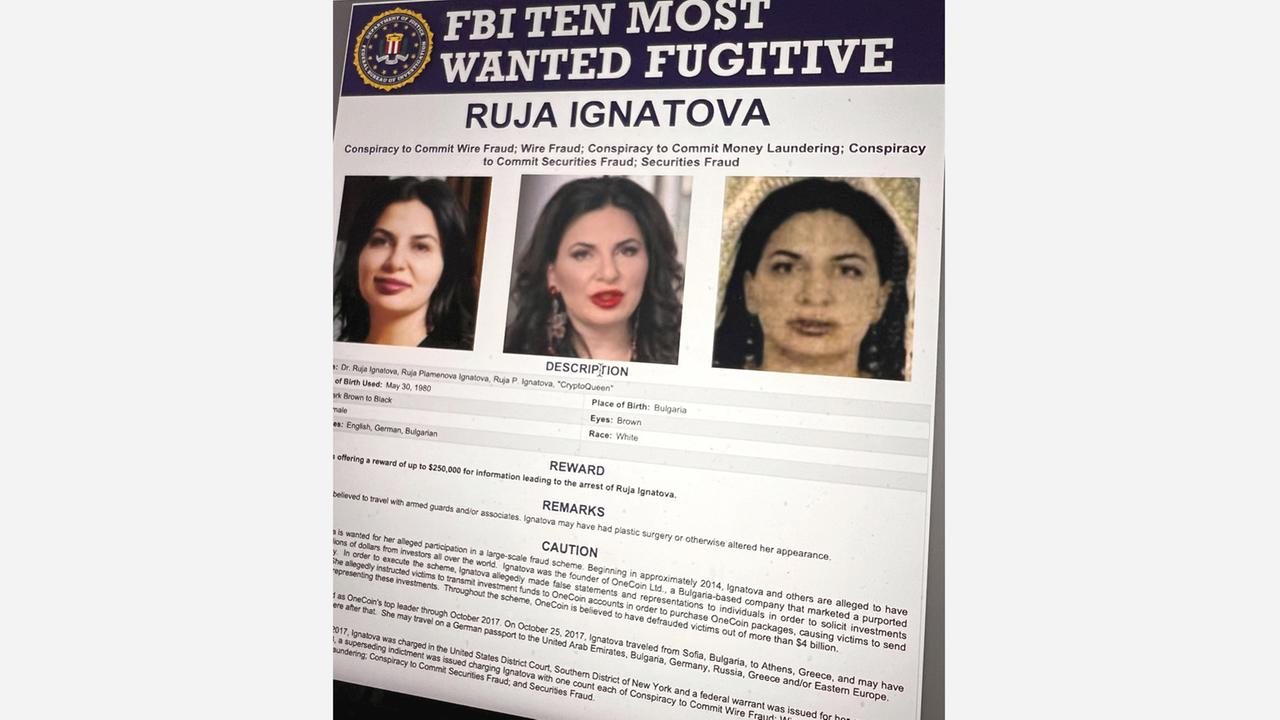The Münster Regional Court handed down the verdicts in the mammoth trial surrounding the fictitious cryptocurrency OneCoin. A couple from Greven and a lawyer from Munich were sentenced to several years in prison.
The Münster Regional Court’s verdict was five years in prison for Frank R. and four years for Manon H.: The couple is accused of having collected around 320 million euros from around 90,000 customers across Europe for the invented cryptocurrency OneCoin. The lawyer from Munich is said to have transferred some of this money to overseas accounts. He was sentenced to two years and nine months in prison.
The couple from Greven had damaged millions of customers by up to three billion euros. The two had acted as the European financial headquarters for the global fraud involving the fictitious cryptocurrency. The 50-year-old Manon H. and her 71-year-old husband Frank R. founded a company in Greven for these transactions and concluded a contract with Ruja Ignatova, the mastermind of the fraud.
Married couple through Suspicion of money laundering blown up
The German-Bulgarian was the idea behind the cryptocurrency. She advertised OneCoin internationally at lavish events between 2014 and 2016. Then the self-proclaimed “crypto queen” went into hiding. The FBI now lists her as one of the ten most wanted criminals.
Frank R. is considered a professional in the field of pyramid business, the so-called multi-level marketing. In 2016, however, the company was noticed by a suspected money laundering report from Kreissparkasse Steinfurt. Hundreds of bookings totaling 320 million euros within a few weeks had aroused mistrust.
Process lasted three years
The defendants had obviously deliberately avoided any references to OneCoin in their banking transactions. According to the Bielefeld public prosecutor’s office, which focuses on white-collar crime, the Greven couple received several million euros in commission for a small outlay.
The trial in Münster lasted a total of three years. In 43 days of proceedings, the regional court shed light on the fraudulent scam. Afterwards, so-called training packages were sold according to a pyramid scheme, which gave customers completely worthless shares of the cryptocurrency. Buyers were then led to believe over the Internet that they could “mine” the currency and were presented with a fictitious increase in value.
Little hope for compensation
Although the defendants are not said to have known all the details of the OneCoin fraud, the court is convinced that they noticed enough signs of the fraud. In addition, the Greven couple did not have the necessary authorization for such financial transactions.
The Munich lawyer is said to have transferred 20 million euros to overseas accounts using false information. The defense, however, argued that the defendants had always considered OneCoin to be a reputable currency. They had pleaded for acquittal or a lenient suspended sentence.
Even after the verdict, those affected likely have little hope of receiving compensation. Of the three billion euros, the public prosecutor’s office was only able to secure 28 million euros.





